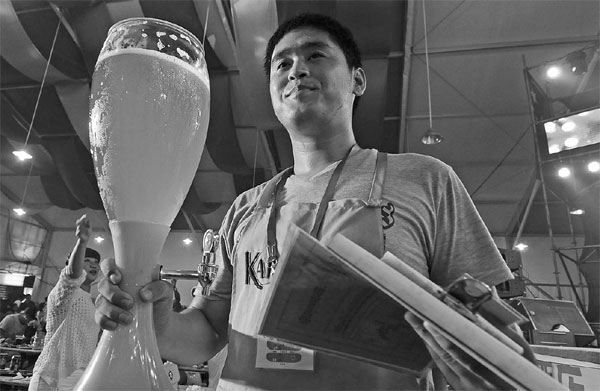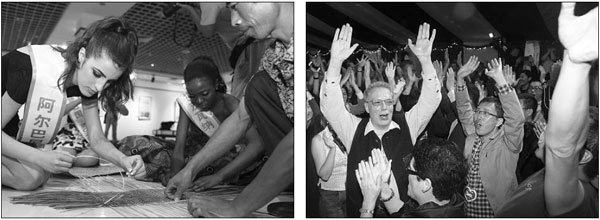Qingdao: The city that was built on beer
Updated: 2014-08-30 07:21
By Mike Peters(China Daily)
|
||||||||
Bikinis, beach volleyball and other entertainment help a summer festival grow every year.
It's a breezy summer day in coastal Qingdao, and I am awash in beauty and beer. I've been hanging out all morning with 48 lovely young ladies, each one a beauty contest winner in her home country or region. They've come to China for about 20 days of publicity appearances, ending with a bikini contest on the final weekend of Qing-dao's annual beer festival.
Andrea Torres, the 20-year-old contender from Panama, is participating in just one of the entertainments surrounding the festival. But she's not drinking beer.
|
A festival employee carries a glass of fruit-flavored beer at the annual Qingdao Beer Festival in the coastal city in Shandong province. Wang Haibin / For China Daily |
|
From left: Participants in a bikini contest learn about Chinese culture and crafts; Expats and Chinese celebrate a beery tradition. Photos provided to China Daily |
"Nooo!" she says, laughing. "When you do this, you have to be healthy, eat healthy."
Even more than most foreigners in China, these ladies are eagerly photographed by local admirers. Namibia's statuesque Carlen Nell, 18, is a camera magnet because she is extremely tall as well as pretty. Martina Stetiarova, 24, is also awash in a sea of camera flashes: The Slovakian is tall, beautiful AND blonde.
"The bikini girls" are quite busy: Learning to do Chinese paper cuts (photo op). Getting an introduction to Chinese opera (photo op). Lunch (no photo op - who looks good when they're eating?). Then we're off to the Qingdao Olympic Sailing Center (mother of all photo ops!)
"So hot!" one of the staff members sighs after giving his glamorous guests a seaside tour.
Bathing beauties
It's no coincidence that the bathing beauties are in town during the week of the Qingdao Beer Festival, now in its 24th year.
Lin Xingyu, the director, chief consultant and primary designer of the event, has been here for each of the two dozen festivals. He's made such a study of the production that he's also a guest lecturer on the topic at both Peking University and Shanghai Normal University.
While beer is at the heart of the two-week extravaganza, this is no drunken frat party. Some college students naturally find their way to the nearby beaches with a bag of beer under each arm, but the festival season has grown with a variety of entertainments that gravitate to this time period: the bikini contest, a collegiate volleyball championship, a sailing week and two days of sailing competition with Olympic-style events. This summer the city is hosting the International Horticulture Expo, a big draw for families.
"Festivals are carriers of culture," Lin says, and many of the partygoers we meet in the streets say they're here for the performances more than the beer.
As we follow him through a museum on the grounds of "Beer City", the biggest festival venue, Lin waves proudly as we pass a wall of coasters, souvenir T-shirts and about a thousand other pieces of beeraphernalia.
"The first 10 years we had mostly domestic beers here," he says, "but as China's opening-up really got underway, we've had more foreign brands. That includes Carlsberg, the Danish beer giant with a huge presence in the country - in fact, it's brewed in China. There are also vendors here for beers including Maredsous (Belgian) Zwickl (Czech) and German brews Paulaner, Spaten and Erdinger.
"All big cities in China have some kind of festival," Lin notes, "but few have one based on something so indigenous, so tied to the city's identity. Most have to copy something from others." (Take that, Tianjin!)
Seafood, not sauerkraut
The festival's ties to the port city's identity are based on the century-old brew Tsingtao - the Germanization of the city now known again as Qingdao.
"It's like Oktoberfest, but with great seafood instead of schweinbraten and sauerkraut," says Allie, a perky Chinese undergraduate who is working as our tour guide at the Tsingtao beer plant and museum. Her accent is spot-on British, borderline posh; the background music is not cheesy oom-pah-pah but Beethoven's Moonlight Sonata.
The brewery tour is a must-do for festivalgoers - there's a tasting room at the end and some cool history on the way. Drunk or sober, you can get your picture taken and then printed on the label of a souvenir beer bottle.
Allie breezes through German folk sayings about beer, chats about the German who made the brewery's first beer and the Dane who made its first yeast - which is propagated over and over so that the great-great-great grandchildren of those yeast spores go to work to make Tsingtao today.
"Taste this!" she says, sprinkling a small heap of cereal into the open hands of her charges. "That's the malt - it's Australian.
"That stuff that looks burnt," she says, pointing to a tub of malt that's much darker, "is roasted longer to make dark beer." She scoops out more samples. "It tastes rather like coffee," she says, adding that during periods of war those roasted cereals were in fact used to make a coffee substitute in Europe.
Tsingtao was launched in 1903, when the Germans occupied the city with 6,000 troops after two missionaries were killed. The incomers "rented" the city, signing a 99-year lease, though they would abandon it in 1916 as World War I - and a Japanese invasion - began. During their time, the Germans made two kinds of beer: Pilsner Light and Munich Dark, producing a total of 2 metric tons.
Today the brewery makes 3.8 million tons for international markets as well as domestic ones," Allie says, noting that the malt is from Australia, the water is from local Laoshan springs and the hops come from China's western Gansu province and the Xinjiang Uygur autonomous region. Besides the malt, Tsingtao's various brand labels are also brewed with rice - 35 percent - to cater to Asian tastes.
Venues extended
Four million people went through the beer festival venues last year, when the venues were extended to several parts of the city for the first time. Those revelers - 95 percent of them Chinese, most of them men and most under the age of 45 - consumed 1,100 tons of beer over 16 days.
Those figures represent year-on-year growth of 11.9 percent, a figure that has been consistent for the life of the festival, director Lin says, and he expects this year's event, which ends Aug 31, to hit the same target. There are beers and souvenirs for every taste, from brass bottle openers with big-breasted beer goddesses to elegant commemorative envelopes and stamps marking the brewery's centennial.
"You can tell who the tourists are - they are the ones drinking out of a bottle," says Zhou Bingbin, 30, who is sipping a foaming tankard at a sidewalk cafe. "That tastes like rubbish, of course - but bottled beer has to be heated to kill the live yeast, so the product has a shelf life of a whole year."
Zhou isn't looking for a "product" that will hang around that long, so he relishes the fresh stuff, served up in big mugs at local taverns and in easy-to-tote plastic bags for those heading to the beach.
"The great thing about Qingdao is that the whole city is consumed by beer," he says. "You can enjoy the beer culture in the peace and quiet of your favorite tavern, every day of the year."
(China Daily 08/30/2014 page14)
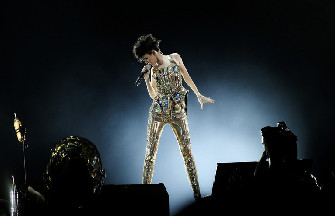
 Star Stefanie Sun holds concert in Beijing
Star Stefanie Sun holds concert in Beijing
 Faye Wong's manager refutes star's drug rumors
Faye Wong's manager refutes star's drug rumors
 Lu Yi and daughter Bei Er pose for street snaps
Lu Yi and daughter Bei Er pose for street snaps
 Photoshoots of actress Li Xiaomeng
Photoshoots of actress Li Xiaomeng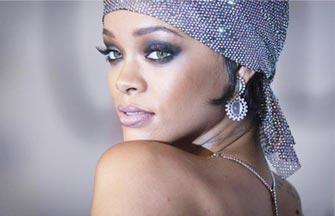
 Council of Fashion Designers of America Awards
Council of Fashion Designers of America Awards
 Fan Bingbing, first Chinese actress in Barbie Hall of Fame
Fan Bingbing, first Chinese actress in Barbie Hall of Fame
 Awarding ceremony of 2014 hito Pop Music held in Taipei
Awarding ceremony of 2014 hito Pop Music held in Taipei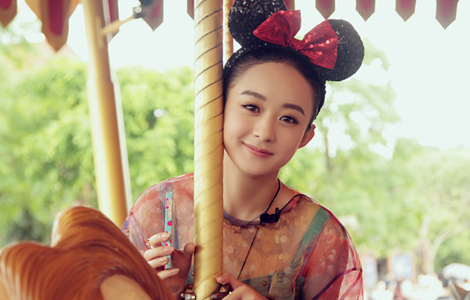
 Zhao Liying's photo shoot for Children's Day
Zhao Liying's photo shoot for Children's Day
Most Viewed
Editor's Picks

|

|

|

|

|

|
Today's Top News
Beijing spruces itself up for APEC summit
New Budget Law to change the game
Microsoft asked to explain monopoly accusations
China makes largest share of foreign students
Chinese American to run NYC public schools' fund
US launches fresh air strikes on IS rebels
NPC decision a landmark in HK democratic development
Chui Sai On elected Macao chief executive-designate
US Weekly

|

|
